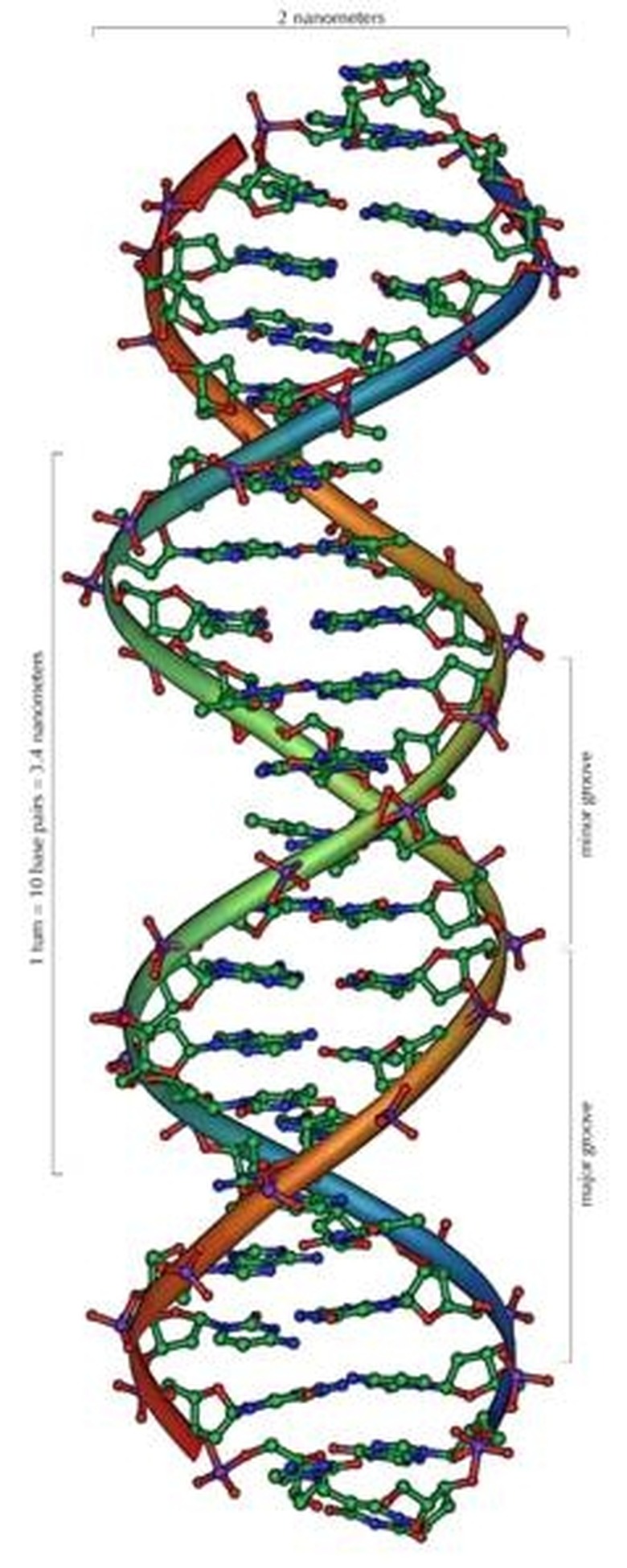When Was DNA Testing First Used?
DNA testing evolved from the study of genetics, which began in the late 1800s when Gregor Mendel first studied the phenomenon of inherited traits in pea plants. His work laid the foundation for the discovery of DNA, or deoxyribonucleic acid, the molecules that contain our genetic makeup. Despite the fact that nearly 99 percent of human DNA is similar, there is enough of a difference in the remaining 1 percent to make it possible to identify an individual.
DNA Facts
DNA Facts
DNA is made up of four base chemicals, adenine, guanine, cytosine and thymine. These pair with each another to form a double-helix structure. DNA is passed down from parent to child through chromosomes. Each human cell has 46 chromosomes, half inherited from the mother and half from the father. Chromosomes and the DNA they contain make it possible to determine someone's genetic lineage.
Early Tests
Early Tests
The first genetics tests were done by Gregor Mendel, an Austrian monk who began by crossbreeding different types of pea plants in 1856. He was able to create new varieties of plants that exhibited traits passed down from earlier generations. Some of the traits he measured related to pea color and size. Although they were rudimentary tests, they showed the difference between dominant and recessive genes, given what trait was exhibited in the offspring pea, compared with the parent. It was this work that earned Mendel recognition as the "Father of Genetics."
Use in the Legal System
Use in the Legal System
As our understanding of genetics and DNA grew, so did the possible applications of the science. DNA testing entered the U.S. legal system in 1987, when Tommy Lee Andrews of Florida was convicted of rape after tests matched a sample of his blood with semen left at the crime scene. DNA also can be used to clear someone of a crime. Glen Woodall of West Virginia was in prison for rape, kidnapping, and robbery when subsequent DNA testing proved his innocence. He was released in 1991 after having served four years in prison.
Paternity Tests
Paternity Tests
Since DNA is inherited from both parents, it is possible to determine parentage conclusively. One of the most famous paternity tests was in 1998. It involved Thomas Jefferson and a slave named Sally Hemings. Based on DNA from descendants of both of them, scientists concluded that Jefferson fathered all six of Hemings' children.
Identification
Identification
Using DNA testing as a means of identification is becoming more common. In 1992, the Army began collecting DNA samples from recruits to make it easier to identify soldiers killed in action, especially when there are few remains. In 1998, DNA extracted from the remains of a bone was used to identify the Unknown service member of the Vietnam War buried at Arlington National Cemetery. The remains were identified as Air Force 1st Lt. Michael Blassie.
References
Cite This Article
MLA
McKenzie, E. H.. "When Was DNA Testing First Used?" sciencing.com, https://www.sciencing.com/dna-testing-first-used-5301112/. 24 April 2017.
APA
McKenzie, E. H.. (2017, April 24). When Was DNA Testing First Used?. sciencing.com. Retrieved from https://www.sciencing.com/dna-testing-first-used-5301112/
Chicago
McKenzie, E. H.. When Was DNA Testing First Used? last modified August 30, 2022. https://www.sciencing.com/dna-testing-first-used-5301112/
